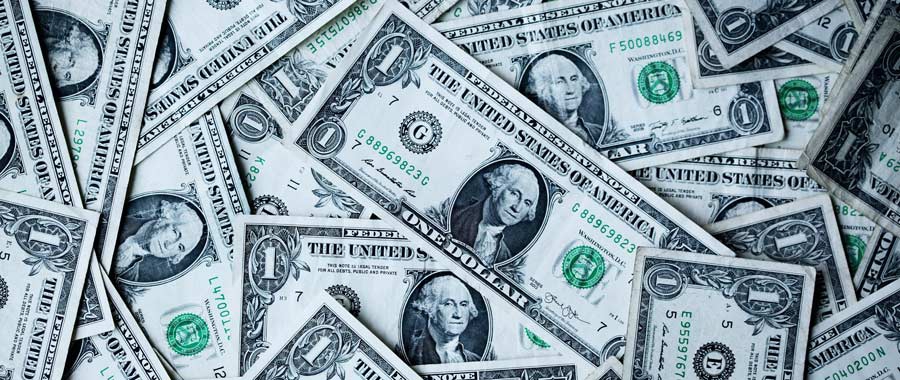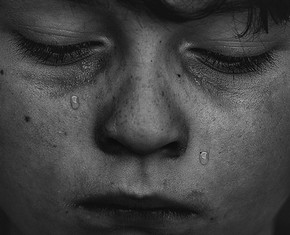The views expressed in our content reflect individual perspectives and do not represent the authoritative views of the Baha'i Faith.
In the economic free-for-all of a globalized economy, no mechanisms exist for global economic management or common regulations for multinational corporations.
Beyond national borders, anything goes – and as science has shown, growth cannot continue forever in a finite system.
Since the end of the Cold War and the collapse or transformation of most communist systems, the free-market capitalist economy has spread around the world and created wealth on a scale previously unimaginable. It demonstrates the triumph of deregulated enterprise and innovation, including financial innovation, and confirms the dominance of the United States and its consumer culture as the world’s largest economy and the model to follow.
Economists convinced by this model have been the drivers behind most government policies around the world for the last few decades. As a result, the western economy and its materialistic values have been exported to every corner of the world.
The material success of this system has made it relatively impervious to critiques that it might be socially or environmentally unsustainable in the long term, or that it creates an enormous disparity in wealth among people. The Baha’i teachings, however, have put forth a new spiritual solution to the world’s economic problems:
It is evident that under present systems and conditions of government the poor are subject to the greatest need and distress while others more fortunate live in luxury and plenty far beyond their actual necessities. This inequality of portion and privilege is one of the deep and vital problems of human society. That there is need of an equalization and apportionment by which all may possess the comforts and privileges of life is evident. The remedy must be legislative readjustment of conditions. The rich too must be merciful to the poor, contributing from willing hearts to their needs without being forced or compelled to do so. The composure of the world will be assured by the establishment of this principle in the religious life of mankind. – Abdu’l-Baha, The Promulgation of Universal Peace, p. 107.
In spite of this gross economic injustice, growth has become the unchallengeable primary goal of business and government – and suggestions that there might be limits to growth were derided and ignored.
But experts in the scientific and environmental communities have long suggested that humans might also be vulnerable to overshoot and collapse. They have only recently begun to attract attention after decades in the wilderness of indifference. Evidence for climate change, like melting ice caps and the rapid rise and general instability in food and energy prices, signalled even to economists that something had gone fundamentally wrong in the system.
Fire burst out in the global economy with the collapse of the banking system in 2008, after the American sub-prime mortgage scandal and its propagation throughout the world’s economy. This provided a sudden challenge to the dominant economic paradigm. Sophisticated mathematical models for managing financial risk proved incapable of managing greed. The triumphant free-market economy went up in flames. Stock markets plunged and unemployment surged. Price volatility for fossil fuels and food destabilized national economies and plunged millions more into poverty and hunger.
As that world recession deepened, it necessitated government intervention on an unimaginable scale to head off a complete collapse of the financial system and economy. Money was poured into the economy, like water into a building on fire. The attempt to restore confidence in the banks and to restart lending saw debt increasingly being transferred to governments – on the assumption that no one would worry about governments’ ability to repay their debts. Social unrest increased as workers asked why the rich got all the handouts while they themselves lost their jobs. Understanding the complexity of the situation, the head of the European Central Bank, Jean-Claude Trichet, said, “We live in non-linear times: the classic economic models and theories cannot be applied and future development cannot be foreseen.”
The consequences of the fires still smoldering in the economic system are far from evident. The distinguished economist Augusto Lopez-Claros warned in December 2008 that the real danger was not a deepening recession, but the possibility that massive government intervention might produce a partial recovery. Leaders would be convinced that they had avoided the worst, and would not recognize that the economic system was broken and in need of fundamental reform. Having used every weapon in their armory, there would be nothing left with which governments could respond in the next crisis. This is exactly what has happened.
The current economic paradigm depicts growth measured with GDP as the only way to improve society, viewing economic growth as the solution to all of our problems.
There is a logic to the economists’ attachment to growth. A system based on borrowing and debt cannot survive otherwise. A growing economy will create new wealth to reimburse current borrowing and interest. Without growth (or the shadow of growth that results from inflation), there is no way that debts and accumulating interest can be repaid, and the whole system collapses like a house of cards.
We need to question the basic values on which modern society has been based, where success is measured by growth in the economy, in business and in politics – and any leader who does not bring growth in GDP, profits or power is quickly replaced. The growth paradigm may have been a necessary response to an expanding population, an increased energy supply and growing resource exploitation, on which technological advances have been built. However, the United Nations estimates that the world population will stabilize in the middle of the 21st century, and it already has done so in many wealthy countries. The decline in fossil fuel reserves means the end of the cheap energy subsidy on which industrialization, trade and intensive agriculture have been based. In a heavily-exploited world, it is difficult to see where further significant growth in natural resources can come from. Economic growth as we have known it cannot continue, except to respond to the needs of the poor:
Baha’u’llah set forth principles of guidance and teaching for economic readjustment. Regulations were revealed by Him which ensure the welfare of the commonwealth. As the rich man enjoys his life surrounded by ease and luxuries, so the poor man must, likewise, have a home and be provided with sustenance and comforts commensurate with his needs. This readjustment of the social economy is of the greatest importance inasmuch as it ensures the stability of the world of humanity; and until it is effected, happiness and prosperity are impossible. – Abdu’l-Baha, The Promulgation of Universal Peace, pp. 181-182.
Avoiding overshoot and collapse means abandoning the growth paradigm for a model based on balance, efficiency, equitable distribution, optimal sizes, renewable energy and closed materials systems – in what is sometimes called the circular economy. As in nature, the wastes of one part of the system become the inputs to another, so everything is recycled and nothing is simply thrown away. This implies a revolutionary change in economics, politics and society.
This change will not come easily, but it is the only way to put out the fire.
Arthur Lyon Dahl’s new book In Pursuit of Hope, A Guide for the Seeker, published by George Ronald Books, is available here.
















Comments
Sign in or create an account
Continue with Googleor